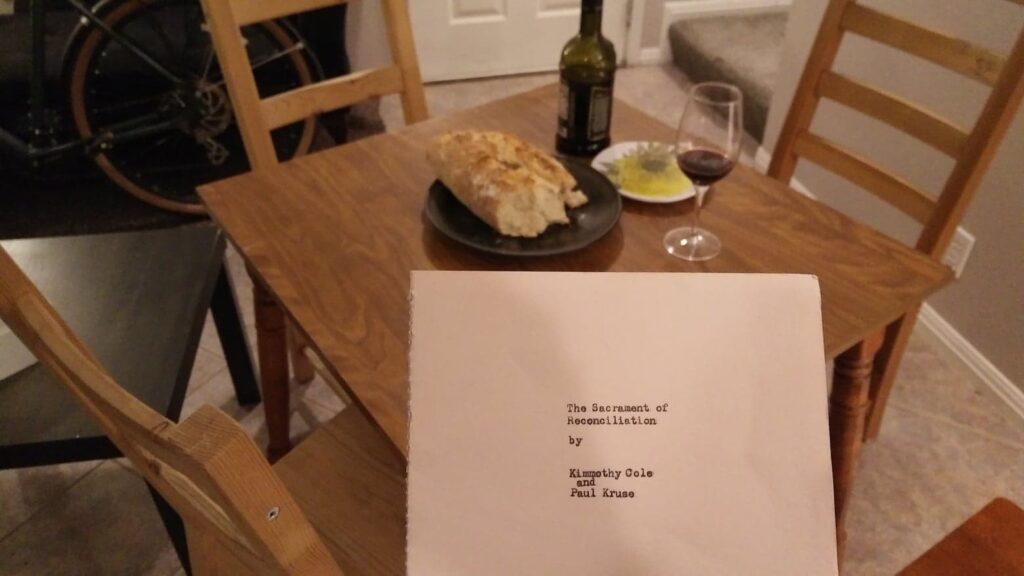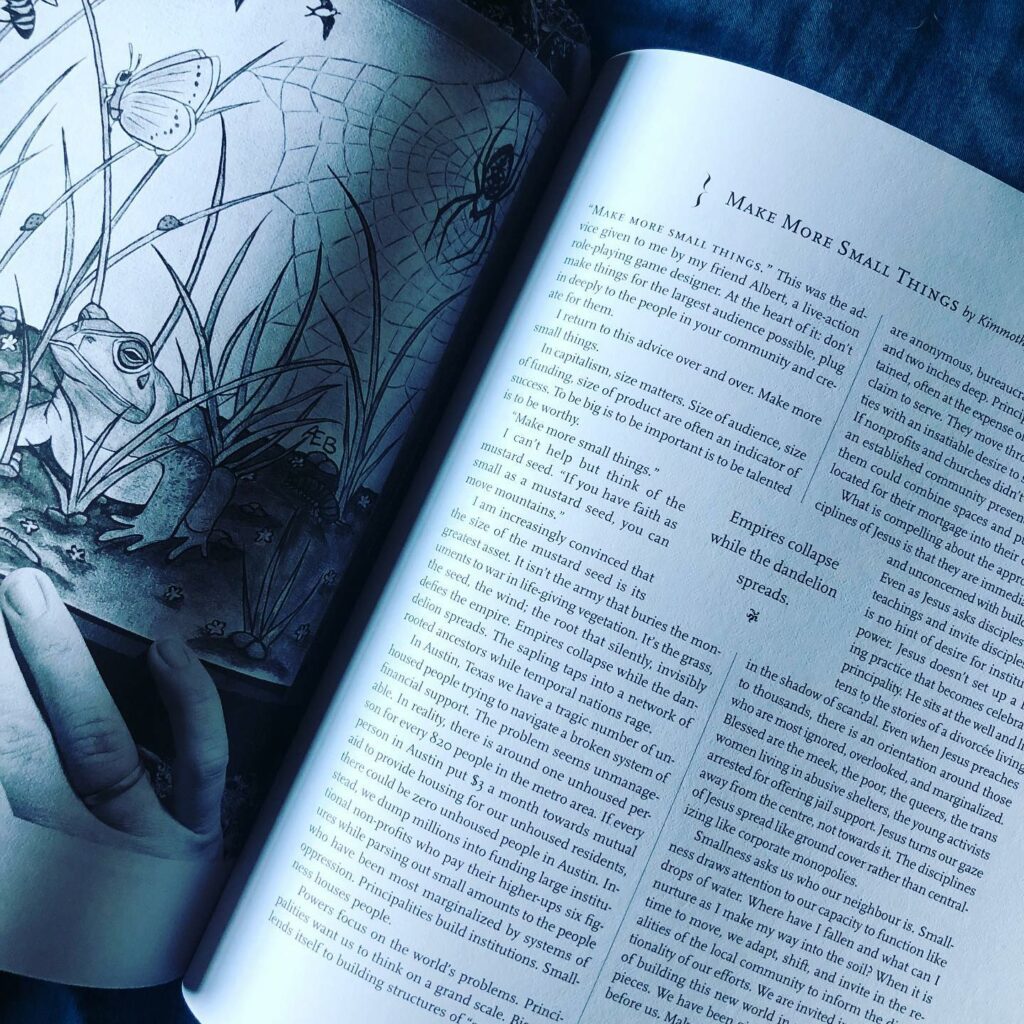Kimmothy Cole (they/them) ministers to people through experimentation with ritual. Kimmothy sees ritual as a revolutionary act, a way for communities to reorient themselves around their own value systems, and away from the conditioning and systems they were raised in. Ritual is an important way to bring people into connection with the Creator and the patterns of the earth.
Kimmothy (a pastor’s kid) grew up in the church and also has a theater background. They came to their current work through their work in the theater. In 2016 Kimmothy was working on their first solo performance and began using ancient rituals as a way to amplify the story they were telling. Kimmothy found that leading others in ritual used a lot of the same skills they learned in the theater, but allowed for a more concrete connection with people. They say, “I was able to develop rituals for communities that were actively trying to disentangle themselves from the oppressive systems they were taught.”
New rituals
For example, Kimmothy developed a ritual around decolonizing American Thanksgiving. Instead of celebrating Thanksgiving in the traditional way, the community celebrated their own feast of gratitude at another time while Thanksgiving Day became a day of mourning for Indigneous cultures. “New rituals allowed people to step away from something they didn’t want to be a part of anymore and step into something they did want to be a part of.”
Kimmothy has developed many other ritual ceremonies. They have developed or are developing rituals around the 7 Catholic sacraments. For example, Confession became a 4 hour experience around making bread and having conversations around what it means to forgive. Kimmothy has done Commitment Ceremonies for people, disrupting some of the narratives around marriage, namely that marriage is more important than all other kinds of relationships. They are also working on a baptism ritual for an earth-centered baby dedication.
Seasonal and Earth centered
Kimmothy has also helped others celebrate more seasonal and earth-centered times such as New Moon rituals, which were particularly helpful in the pandemic as a way to regularly meet outside. Kimmothy has a particular fondness for the Summer and Winter Solstice rituals. The Winter Solstice is a reminder of walking through death in order for new life to shine forth. Kimmothy uses the Summer Solstice as a way to celebrate the vibrancy of summer instead of the 4th of July, a way to celebrate without orienting around “America.”
Another important part of ritual and spirituality for Kimmothy is orienting and connecting with God in nature. “If God is the creator of the universe, then the ways I move in and out of alignment with creation are not outside of my commitment to Spirit and Creator. My spirituality is built around: how do I learn more about God through these trees, who have been around longer than I have? How can I move into alignment with God and be in right relationship with people around me?”
Kimmothy’s ministry is primarily with unchurched or dechurched people. “A vast majority of them need and desire spiritual community, growth, and health, but there isn’t a consistent and healthy context in which those needs can be addressed … There is an idea that people don’t go to church because they don’t want it or need it, but that isn’t right. If you offer people a space where they can show up as their full self and allow them to live in mystery without judgment and to be autonomous about the changes they want to see in their life, then there is a lot of receptivity, desire, and joy.”
Kimmothy admits that they still have difficulty sharing Jesus explicitly in their community as most people are wary of Jesus. “I haven’t quite found the balance on how to talk about Jesus in my community in a way that is authentic to me and doesn’t feel harmful to others.” Despite this difficulty, Kimmothy remains committed to creating spaces where people can bring their full selves and pointed out that the things that draw people in now are the same things that drew people to Jesus in the first place.
One story Kimmothy shared was that they have been testing a ritual for someone to work through their grief. After a 75 minute Zoom she said, “I think this is the first time I have sat still and created space for my grief.”
When reflecting on this story Kimmothy said, “Ritual work is the tiniest steps. The practice of ritual creates and plants a seed for that person that says “its possible, I matter, and it’s worth it.””
If you would like to learn more about Kimmothy or are interested in their ritual experiences you can find more at https://www.kimmothycole.com/




